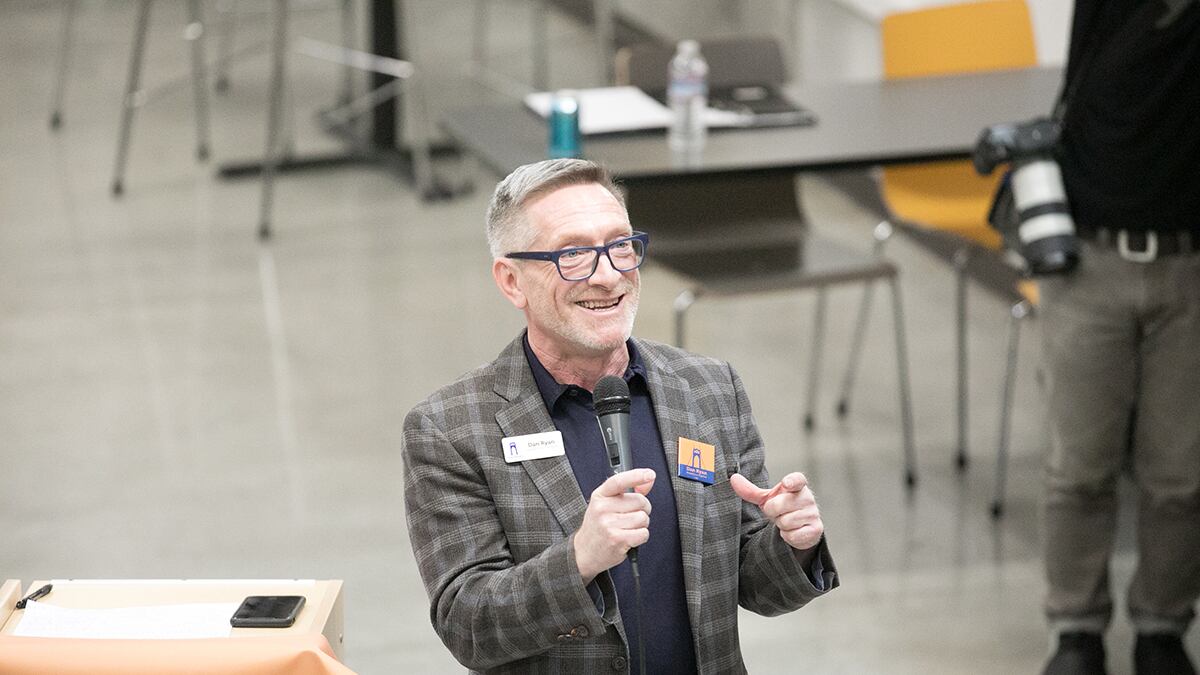The city's new program to publicly finance election campaigns requires candidates to agree they won't accept donations above $250.
But City Council candidate Dan Ryan, a nonprofit executive who is running to replace the late Nick Fish, accepted $945 in donations over the cap and failed to return them within the seven-day limit set by the city's rules.
"That's a huge amount of noncompliance," says Julia DeGraw, one of Ryan's opponents. "You personally get notified of every single donation. My $250 donations are these treasured things."
Ryan's failure is notable in part because he has made following the finance rules an issue in the campaign after one of his competitors, Tera Hurst, executive director of environmental nonprofit Renew Oregon, planned to donate improperly some of her campaign contributions to local nonprofits. (She did not do so in the end.)
"I…bring executive experience, running a payroll," he said at an April 24 virtual City Club of Portland debate.
In a veiled attack on Hurst, he continued: "I found that during the open and elected process, there were some people who thought there was a grayness about can we take our funds and repurpose them and give them to other organizations," he said. "And to me there's nothing gray about that."
After WW asked about the donations, Ryan said he had been relying on his consultant to address the issue and thanked WW for pointing out the problem.
"It's something that's being fixed," says Ryan. "We're working with our treasurer to make sure this doesn't happen again."
He returned the contributions May 9.
Open and Accountable Elections director Susan Mottet has the power to levy a fine equal to the amount a candidate received in excess of the $250 and did not return within seven days. Mottet said she would weigh whether to fine candidates, but that's it's aimed at discouraging them from accepting donations above the limit.
"We plan to audit the program's performance after the first election cycle," Mottet says.
Also returning smaller donations after WW approached them with questions about donations: former mayor Sam Adams ($350), Latino Network executive director Carmen Rubio ($100) and former professor Mingus Mapps ($50).
All three had, in some cases, already returned donations that exceeded the limit.
"Unfortunately, the system is not set up to automatically reject donations over $250," says Inna Levin, campaign manager for Sam Adams. "The measures we have at our disposal to make sure we don't go over are to diligently check every donation, both on our end and our accountant's, and issue a refund as soon as possible."
Mapps' campaign say it plans to audit all its contributions now that it's neared the end of this campaign cycle.
"The Mingus Mapps for Portland City Council campaign, through our partner C&E Systems, has put in place a robust system to double-check for any contribution overages, including when someone makes several donations over a period of time," says Mapps' spokesman, Jade Fox. "The one in question occurred during the change over of operations at C&E Systems due to the COVID-19 requirements."
WW found no instances in which a return had not been completed by incumbent Commissioner Chloe Eudaly or Ryan's opponents, including environmental activist DeGraw, housing organizer Margot Black, and Metro Councilor Sam Chase.
"Maintaining the integrity of the Open and Accountable Elections program is personal for Margot because public financing has given a voice to everyday Portlanders like her," says Gabriel Burns, Black's campaign manager. "We are a real people-powered campaign, with an average contribution of $40, and because our campaign is funded by working-class Portlanders, donors going over $250 is rarely an issue. The two times it's happened, we paid attention and returned the money because the sanctity of this program is invaluable."
DeGraw, an environmental organizer and champion of campaign finance reform, said she personally has flagged donations over the limit.
As for Hurst, the target of Ryan's jab: She's received one donation $50 over the limit that she hadn't returned within seven days. Mottet, the OAE director, said Hurst returned the money promptly when notified the contribution was too large.
Hurst declined to comment on Ryan's mistakes, but said she's been working to keep a careful eye on donations.
"Ultimately, we will need ActBlue (and other common online giving portals) programmed or customized for local limits matching programs; they will need to catch up as other public finance systems develop around the country," says Hurst.
"In the meantime, our treasurer has been good about catching and refunding if a donor exceeds the limit, I also keep watch, and OAE is the final stop for flagging these over-the-limit contributions," she said. "I don't think anyone is accepting or giving over $250 intentionally. Many donors don't understand the limits and want to support as much as they can."

